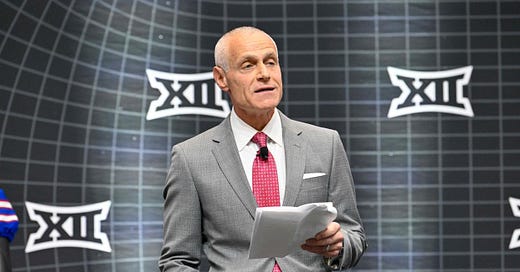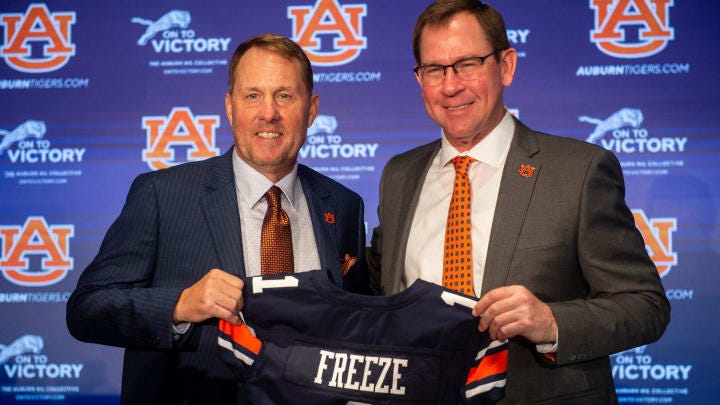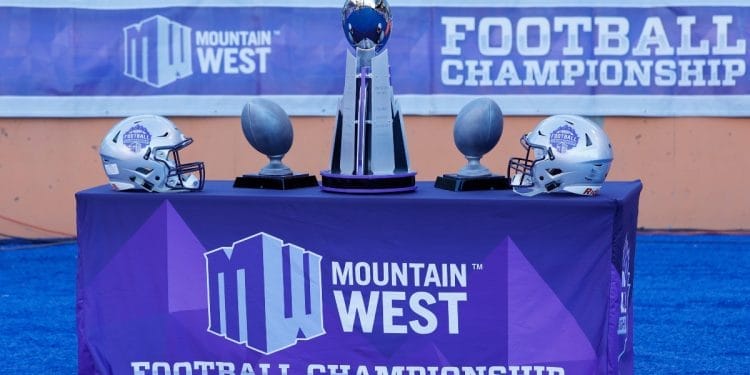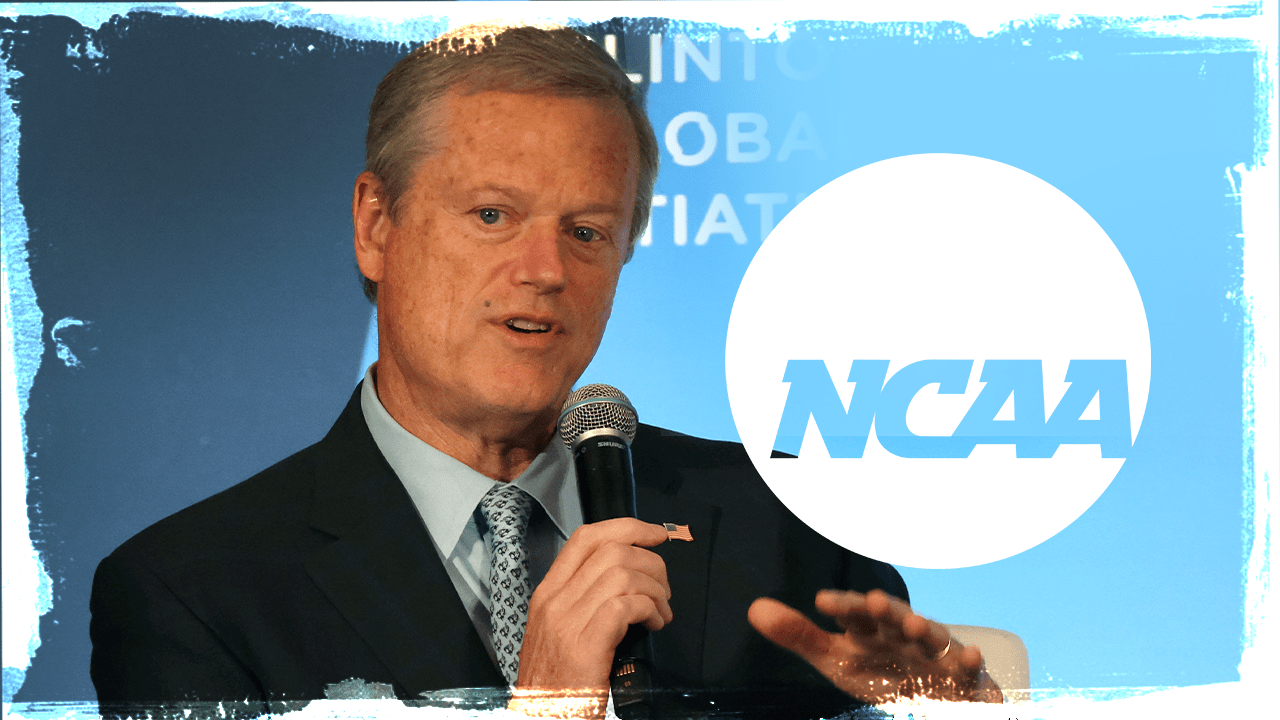LIV Football? With a Big 12-Private Equity Deal Potentially Incoming, What Will College Sports Look Like in the Future?
Keep up to date on all of our newsletters and content by checking out past Optimum Sports Consulting Newsletters, and following us on Twitter!
In the wake of the groundbreaking House Settlement, athletic departments and conferences are preparing for the uncertainties that lie ahead. While some schools and conferences are preparing for the worst, the Big 12 is being aggressive in their approach to generate revenue and compete. Last week it was announced that the The Big 12 was considering two major deals - a naming rights deal with Allstate, and a private equity investment from CVC Capital Partners. The Allstate name change could reportedly bring in around $30-50 million annually, while the private equity deal could bring in up to $1 billion for as much as a 20% stake in the league. Although neither deal is certain at the moment, the potential deals show the Big 12’s commitment to bring in revenue for its schools. And I expect more schools to follow suit.
The House settlement proposes to pay former athletes a total of $2.8 billion in backpay, and it proposes the introduction of a revenue sharing model that would allow schools to pay their athletes up to $20-22 million annually starting next year. As a result, schools are going to have to make tough decisions on how to operate in this new age of college sports. Auburn athletic director John Cohen, for example, recently stated that this could mean limiting roster spots, cutting scholarships, or cutting certain sports altogether. Or schools may look to find different ways to generate revenue.
There are three levels that athletic departments can look to generate more revenue: At the school-level, the conference-level, or through the overall governing body.
Conference-Level: As highlighted by the Big 12, conferences are already starting to look at naming rights deals and private equity investments as a way to generate revenue. Another development that could come about in the future is conference mergers. We are already seeing schools like Texas and Oklahoma leave their old conferences for ones with more money and bigger revenue deals. In an effort to combat this even further, we could see conference mergers. The Mountain West Conference, Conference USA, and the Sun Belt Conference are three FBS conferences that, on their own, may not be able to entice a big revenue deal. But could they acquire a bigger revenue deal (and maybe a lucrative naming rights deal) if they merged? Whether its through mergers or the creation of new conferences, I expect the alignment of D1 Football and D1 Basketball to look completely different in a few years due to revenue.
School-Level: Outside of the current trend to try and move to bigger conferences with bigger streaming deals, there are many ways that individual schools try and generate revenue. But they may now look to more aggressive money-making schemes following the House settlement. In addition to stadium naming rights deals, the NCAA announced that schools can now have on-field sponsorships. From here, could we soon see jersey sponsorships as well? Jersey sponsorship is an extremely popular practice in other sports like Soccer, Mixed Martial Arts, and Golf. In these sports it is standard for sponsors to pay for their logos to be visible on team jerseys and individual athletes clothing. If the NCAA expands to allow jersey sponsorships in addition to on-field sponsorships, schools would surely take advantage of it.
Even further, could schools be interested in team naming rights deals? Instead of just repping a sponsors logo, maybe a school would be willing to change their name altogether. For the price of $25 million a year, would a school like the Kansas State Wildcats be willing to become the Kansas State Geicos?
Individual athletic departments may also seek private equity investment as well. Florida State University worked with JPMorgan Chase to explore institutional investment for its athletics department from Sixth Street and Arctos Partners back in 2023. Although FSU has not yet made any sort of private equity deal, more athletic departments may see institutional investment as a plausible option in the future.
Governing Body: The most extreme avenue that schools could take is by removing themselves from the NCAA altogether. The past several years have already made many schools skeptical of the NCAA. In fact, in a recent survey of 50+ FBS athletic directors over 50% agreed that it was time to abandon the NCAA. With so much disapproval for the current administration, there is the opportunity for a new governing body to emerge. One that prioritizes compensating its schools. Ohio State athletic director, Gene Smith, recently stated that the NCAA needs to establish a compensation package for its schools. If another governing body promises major compensation to schools that decide to leave the NCAA, schools would consider it. But who has the funds and infrastructure to create such an organization? Maybe private equity firms.
The idea that a private equity firm sought to create and/or buy an entire league is not new. During a player lockout by the NHL in 2005, franchise owners and a group of bankers led by Bain Capital’s Stephen Pagliuca (who would later own part of the Boston Celtics) met in New York City to discuss Bain Capital’s potential purchase of the entire NHL for $4 billion. This included every team, every stadium, every sweater, and every puck. I imagine creating an entire governing body would not come cheap. But with the skyrocketing interest by institutional groups to invest in sports, and the current skepticism surrounding the NCAA, the opportunity is there. And we have seen it successfully done with LIV Golf.
Back in 2016, Crown Prince Mohammed bin Salman of Saudi Arabia launched his Saudi Vision 2030 strategy to diversify the country’s economy with investment in sports as a focal point. From 2016 to 2020 the Saudi’s made investments in the English Premier League, the WWE, and in Formula 1 Racing. And in 2021 they announced the creation of LIV Golf Investments with golf-legend Greg Norman as its CEO. Despite major backlash over the LIV Golf league, LIV Golf was able to lure many of golfs major stars with unbelievably large contracts. And in 2023, LIV Golf and the PGA Tour, the world’s most popular golf organization, agreed to an alliance and potential merger. Could a Saudi-run college league see similar success if it promises massive compensation packages to schools that decide to join? Most likely not. Schools would not move to a Saudi-led league no matter how much money they are offered. Nonetheless, LIV Golf shows that the creation of a successful league/governing body is possible if the compensation is right.
While I do not expect a Saudi-led governing body to emerge, private equity investment opens the door for Saudi-investment in athletic departments and conferences in the future. If teams and conferences are willing to let private equity firms invest, they may be willing to take Saudi investment as well. Personally, I do not think we will see a “LIV” league or conference in college sports. But I do think schools will start getting creative in their revenue-generating tactics. With that in mind, private equity investment and Saudi investment are two options that schools may consider in the future if the price is right.
Thanks for Reading!
Keep up to date on all of our newsletters and content by checking out past Optimum Sports Consulting Newsletters, and following us on Twitter!










